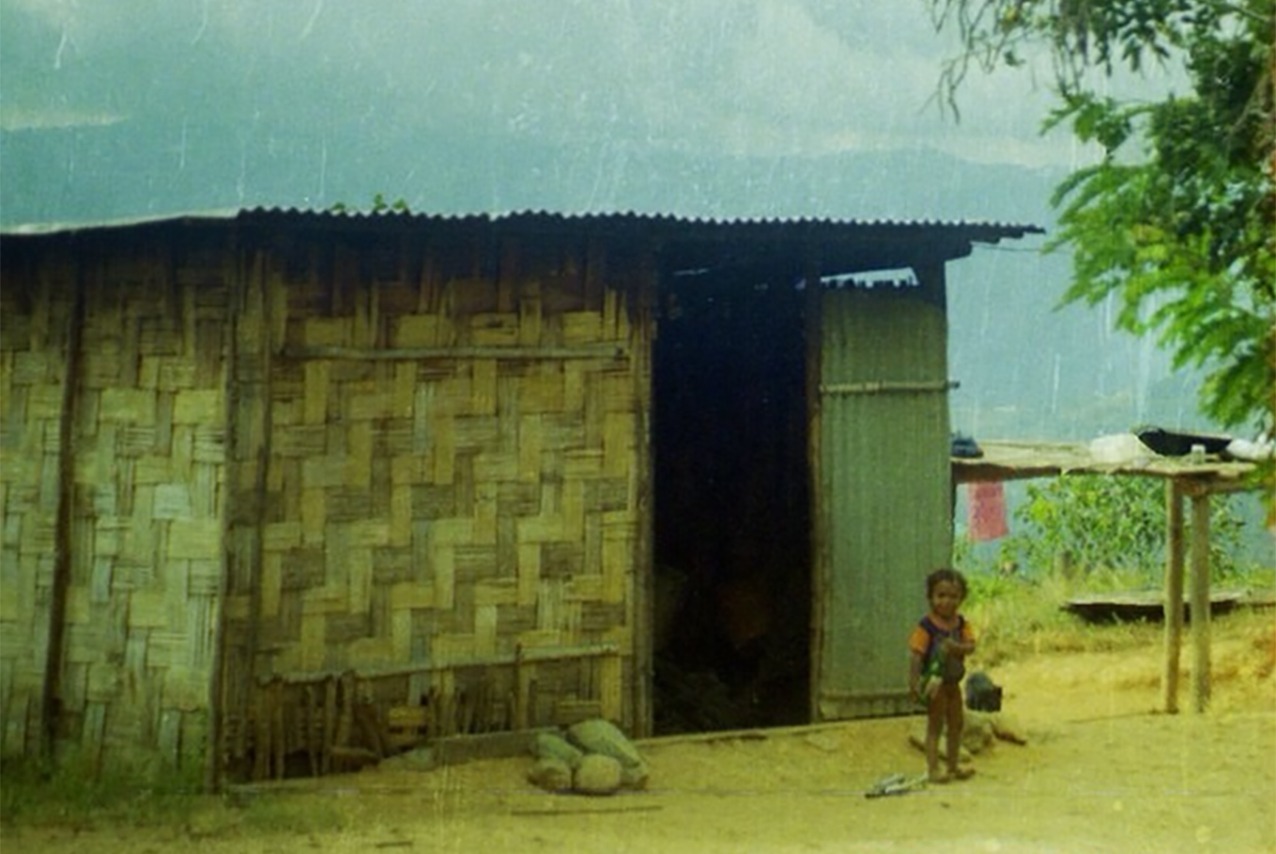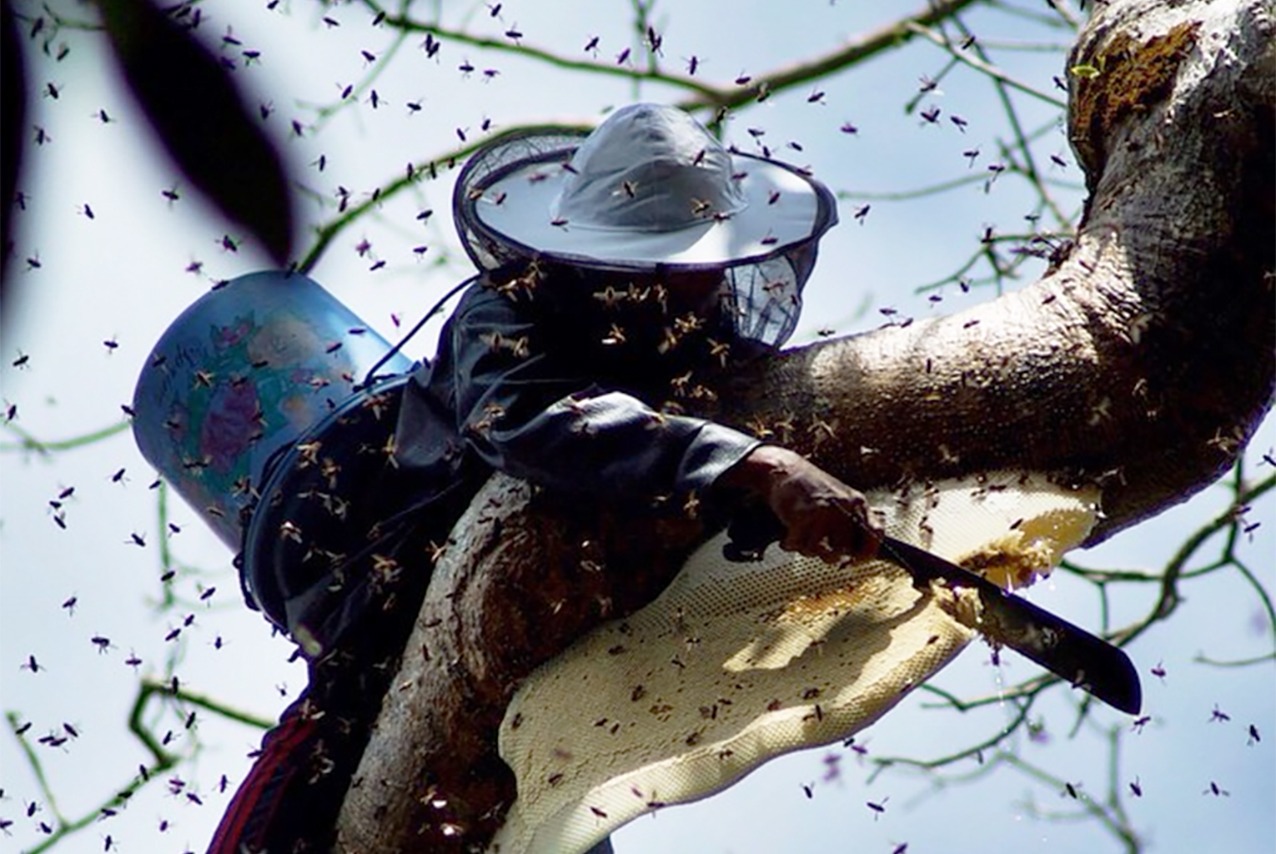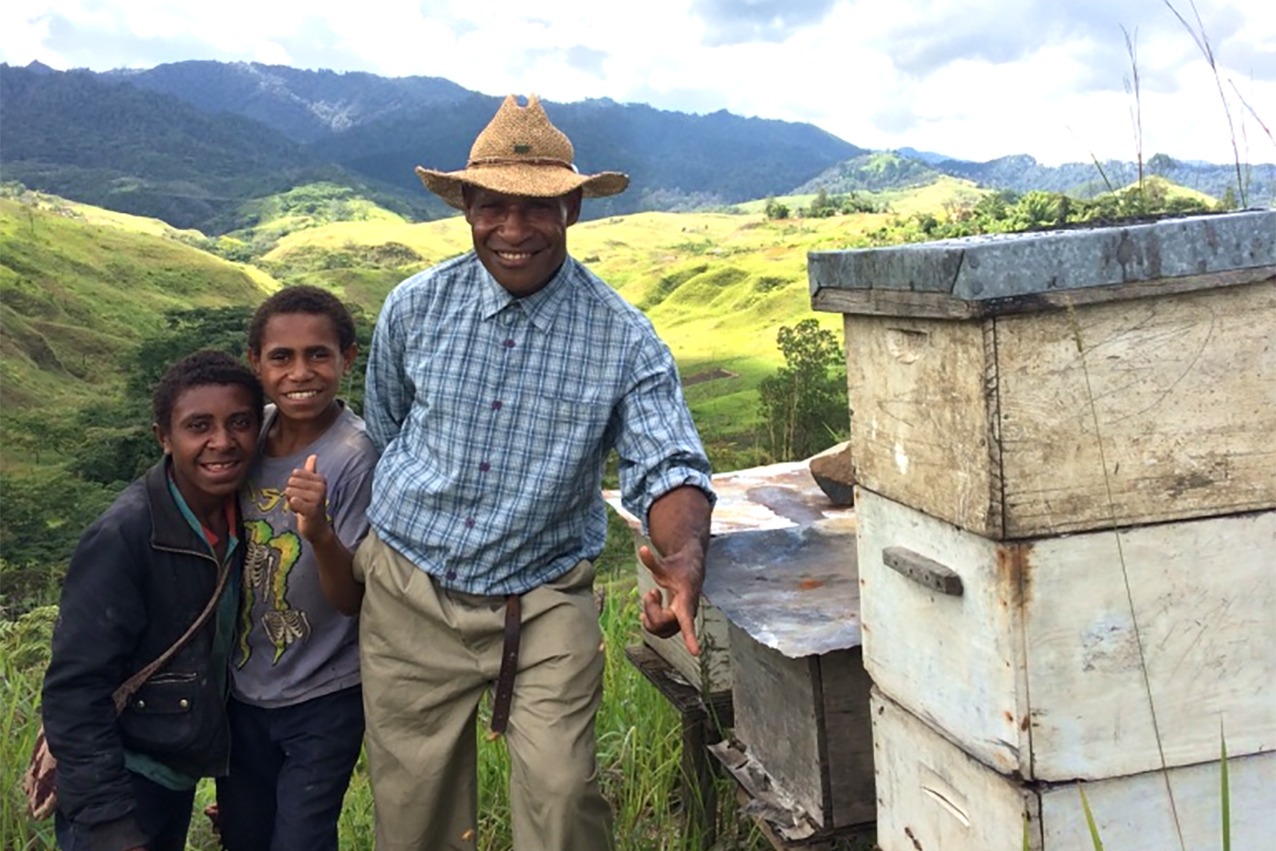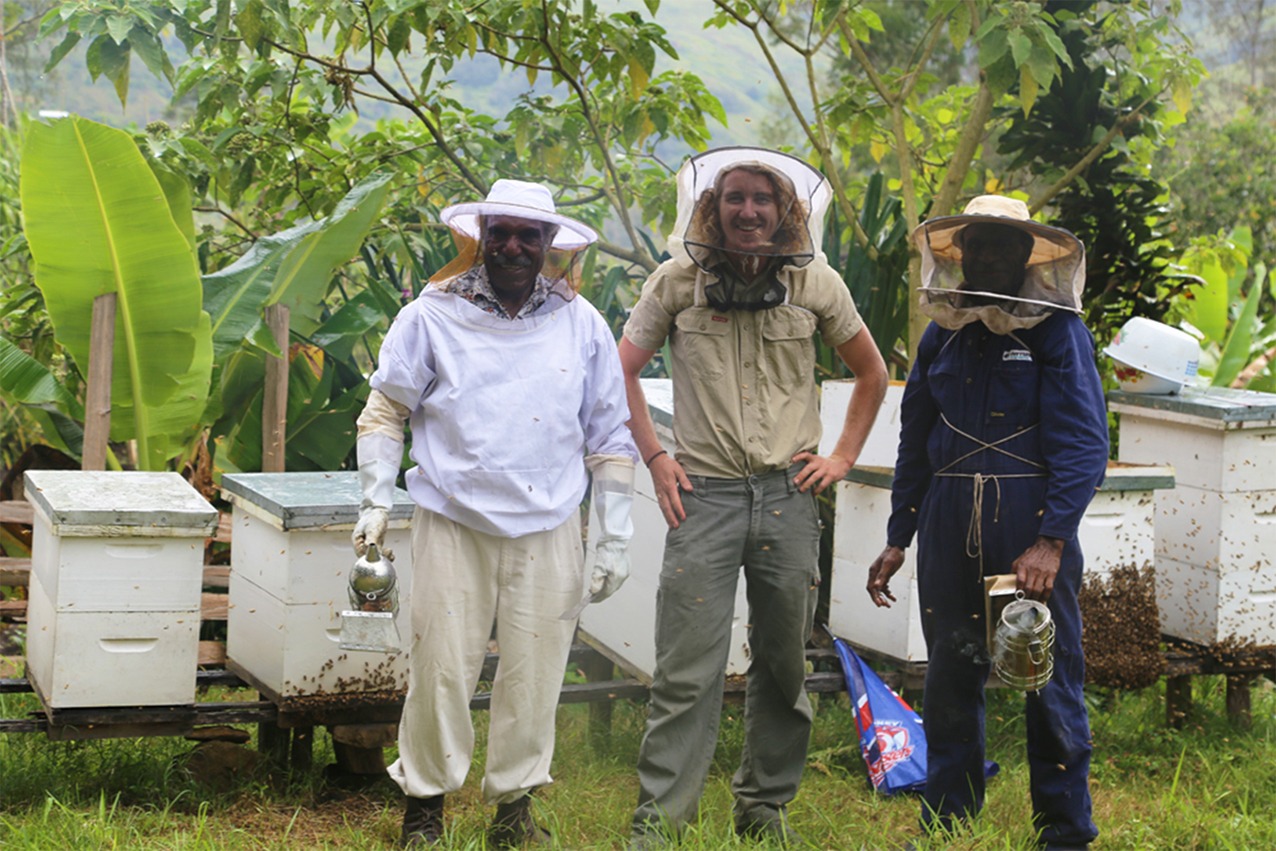

Finding Bees and Friends in Remote Places
May 19, 2020
We came across Dr Cooper Schouten as a PhD candidate at the School of Environment Science and Engineering at Southern Cross University (SCU), when he was awarded a 2018 Crawford Fund conference scholarship. He has worked with The Market Development Facility and Oxfam in Papua New Guinea, and on numerous ACIAR funded research programs. He is now the project manager for SCU’s Forest Research Centres Bees for Sustainable Livelihoods research group and a four year ACIAR project working on improving the productivity and profitability of smallholder beekeeping enterprises in the Pacific. As part of our series of NextGen blogs, and with World Bee Day on 20 May, Cooper explains in this blog his personal career path from university work in Timor-Leste to working as a post-doctoral researcher at SCU. He shares his experiences, lessons and the opportunities along the way. Happy World Bee Day to all!
Partnerships do not come from a store, perhaps partnerships mean a little bit more
Through thousands of bee stings, carrying tons of honey down mountainsides,
Through forests and raging streams, and isolated communities by bareback horse rides.
Through the millions of words written, reports, theses and papers,
What inspires me and has given me purpose, are my friends in remote places.
My passion and love for what I do comes from my desire to develop skills that can be of use to others. When people ask how I got into bees, I say that it was bees that chose me. To paraphrase Mark Nepo, ‘The flower doesn’t dream of the bee, it blossoms and the bee comes’.
The beginning: Timor Leste
I could say that I originally became passionate about international agricultural research while working in Gleno, Timor-Leste, but I will say instead that at the time I didn’t know what this entailed, and rather, I couldn’t be at peace within myself in the world I saw. The DFAT New Columbo Plan Scholarship enabled us to partner with the East Timor Coffee Institute to write a proposal to fund the country’s first rural university science laboratory. I haven’t been back since that partnership to see the building, or to meet the kids my age who risked their lives harvesting wild honey from the tops of 30 m shade trees to support their families. I learnt that people frequently lose their lives honey hunting, and that it’s an unsettling taboo to discuss. I kept detailed notes and drawings, I vexed my supervisor with questions, I shot some film and I posted this image when I got home with the caption ‘tell me again how hard your life is’, and promised myself I’d be back.

Jumping in the deep end: West Sumbawa
A year later I find myself 20 km deep in the rainforest of west Sumbawa. My honey hunting guide Jahuri, places his hand on the ‘Boan’ honey tree and prays to the spirit within to keep him from harm, he climbs a bamboo ladder to get up to the colony of Giant Asian Honeybees (Apis dorsata) with no safety ropes.
After discussion with the honey hunters of Sampak Village, we returned to Jahuri’s home, where we sat up at night on our hard beds, that were made with tender care. Ida, my local research colleague, translates stories of our lives, the jungle, competitive rice planting, the challenges of maize and the secrets to a happy marriage.
A few days later, as we walked up the mountain towards the start of the road, I looked back at the community in the valley below us and asked Ida why Pak Jahuri didn’t come to say goodbye. She replied ‘because he would melt like butter’. I didn’t get a chance to see Ida off at the airport either, but this time I didn’t need an explanation.

Leaving Myself Behind: Papua New Guinea
I was four months in, 4wd-ing among the Eastern Highlands mountains in Papua New Guinea, working with rural beekeepers when I met Korove. ‘K’ walked me through his village and down to the stream past his bees, all the while introducing me to his friends and extended family. I couldn’t yet speak the language but remembered all I could, and joined in on community happenings. I was learning competence by doing, by plunging in and gathering experience on the run, while bringing to bear those wider perspectives of which we as researchers should pre-eminently be aware. The elders of his village recalled his keen interest in honey bees since he was a young boy. He obtained some beehives from an expat when he was in his early twenties and taught himself how to look after his bees, purely by watching, listening and learning from them. When I met ‘K’ he had just three bee colonies left. I spent my weekends in the village, and with ‘K’ talking all things bees and experimenting with new ideas and materials. He now has more than 15 colonies. But, numbers of bee hives is not the best indicator of success, it is his feeling of accomplishment in being able to achieve his beekeeping aspirations, and that he has been able to replace his leaking roof.

Personification of the honey bee: The future
On 20 May 2020, it is World Bee Day, and development professionals may be interested to see bees in a sweet new light. Not only as important honey producing pollinators, but as a personification of partnership, participation and equality in effective decision making. Faced with the annual life-or-death problems of choosing and traveling to a new home, honey bees stake everything on a process that includes collective fact-finding, enthusiastic debate, and consensus building. By cooperating without a leader, the scout bees of a swarm neatly avoid one of the greatest threats to good decision making by groups: a domineering leader. In this way, the group’s collective power is optimised to uncover a diverse set of possible solutions to a problem, to critically appraise these possibilities, and to winnow out all but the best one.
I’ve spent the last eight years devoting my life to understanding the mechanisms influencing the successes and failures of beekeeping for development programs in the Indo-Pacific region. Often the questions are complicated, and yet the answers are simple. More important than many of my formal achievements has been an empathetic understanding of the complex situation of field staff, honest self-criticism, reflexivity, patience, creativity, and a willingness to work in rural areas.
Partnerships came, without ribbons and without tags,
It came without inputs, boxes or bags.
I have learnt much more than I ever could have taught,
From my friends in remote places, and of happiness that cannot be bought.





